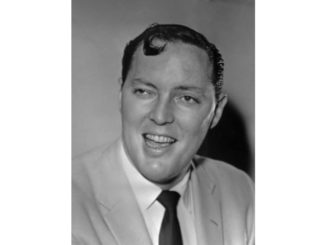My Legends of Pop Music – Part Eight – The Seekers
If I get this right, there will be many cover versions by future bands. I shall try and link live versions if they exist from the tellybox or a film, the sound quality may not be the best, but there is nothing like watching a real talent live.
So, in a sort of chronological order, my eight legends are The Seekers. There have been many changes in the musicians, but the one constant is the incredible voice of Judith Durham.
The Seekers are an Australian folk-influenced pop quartet, originally formed in Melbourne in 1962. They were the first Australian pop music group to achieve major chart and sales success in the United Kingdom and the United States. They were popular during the 1960s with their best-known configuration as: Judith Durham on vocals, piano, and tambourine; Athol Guy on double bass and vocals; Keith Potger on twelve-string guitar, banjo, and vocals; and Bruce Woodley on guitar, mandolin, banjo, and vocals.
The group had Top 10 hits in the 1960s with “I’ll Never Find Another You“, “A World of Our Own“, “Morningtown Ride“, “Someday, One Day” (written by Paul Simon), “Georgy Girl” (the title song of the film of the same name), and “The Carnival Is Over” by Tom Springfield, the last being an adaptation of the Russian folk song “Stenka Razin“. It is still one of the top 50 best-selling singles in the UK. Australian music historian Ian McFarlane described their style as “concentrated on a bright, up tempo sound, although they were too pop to be considered strictly folk and too folk to be rock.”
In 1967, they were named as joint “Australians of the Year” – the only group thus honoured. In July 1968, Durham left to pursue a solo career and the group disbanded. The band has reformed periodically. The Seekers have sold over 50 million records worldwide.
After filling in on a bill headlined by singer Dusty Springfield, they met her brother, songwriter and producer Tom Springfield, who had experience with writing folk-pop material and lyrics/tunes with the siblings’ earlier group The Springfields. He penned “I’ll Never Find Another You“, which they recorded in November 1964. It was released by EMI records, on their Columbia label, in December and was championed by the offshore radio station “Radio Caroline” which frequently played and promoted their music. Despite the fact that the group had not signed a contract with EMI, the single reached the U.K. “Top 50” and began selling well. In February 1965, it reached No.1 in the U.K. and Australia, and No.4 in the United States where it was released on EMI’s Capitol records label. “I’ll Never Find Another You” was the seventh biggest-selling single in Britain for 1965 though their own “The Carnival Is Over“, released later in the year, would eventually eclipse it – and went on to sell 1.75 million copies worldwide
The featured track is their best seller “The Carnival is Over”. The clip is from a TV show from 1967 and in colour!
A full list of his songs is here: Discography – The Seekers
Waltzing Matilda – Live at the Australian football final, could not find a studio quality version, but this is lovely.
I’ll Never Find Another You – from their Australian Farewell Tour 2013
A World Of Our Own (1968, live in glorious black and white)
Someday, One Day, Live: 1966 from the London Palladium
Emerald City\ Walk With Me\Someday One Day – From their 1993 Silver Jubilee Tour Special
Morningtown Ride: Special Farewell Performance. I just really enjoy this one.
When will the Good Apples Fall (1967 from their World of Seeker TV special)
Georgy Girl (1967 doing a free concert. Quality is rather good)
Finally, from their 50th Anniversary Concert, Albert Hall, London on the 2nd June 2014:
Singalong, enjoy and be happy!
Links to previous Legend articles:
| 1-Buddy Holly | 2-Elvis Presley | 3-Everly brothers | 4-Cliff Richard | 5-Joe Brown |
| 6-Gerry and the Pacemakers | 7-Roy Orbison | 8-The Seekers |
Featured Image: Allan warren, CC BY-SA 3.0, via Wikimedia Commons
© Phil the ex test manager 2021



